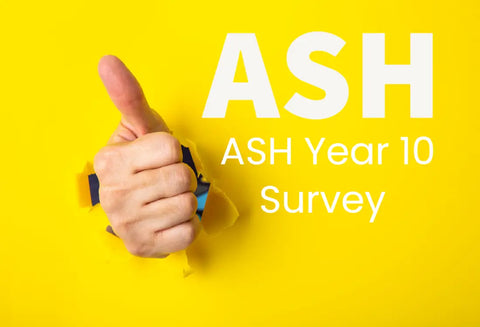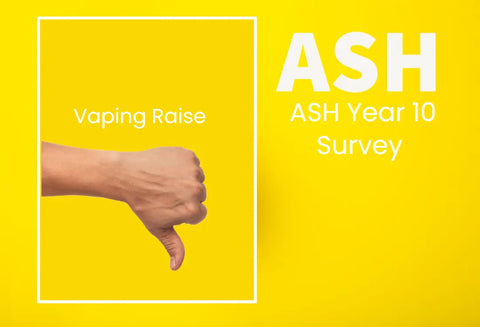2021 Youth Vaping Ash Survey
Youth smoking rates have declined worldwide in recent years, and New Zealand is no exception. A record low number of 13 and 14-year-old students smoke cigarettes daily, according to the 2021 ASH Year 10 Survey, indicating a positive step towards Smokefree 2025. As smoking rates decline, another concerning trend is emerging: the uptake of vaping among young people motivated by curiosity. The objective of this article is to analyze the findings of the ASH Year 10 Survey and shed light on the progress made in reducing youth smoking, as well as the rise of vaping among teenagers in New Zealand.Youth smoking rates decline
In the ASH Year 10 Survey, one of the most comprehensive and longest-running surveys on youth tobacco and vaping behaviors, promising results were found regarding youth smoking rates. In 2021, only 1.3% of Year 10 students smoked cigarettes daily, down from approximately 2% in 2019. As a result of this decline, public health efforts aimed at curbing youth smoking habits have achieved a remarkable success.

All ethnicities showed moderately positive progress in the Maori survey. In just two years,Māori students' daily smoking rates dropped by a staggering 40%, from 6.8% in 2019 to only 3.4% in 2021. The figures point to an important step towards narrowing the life expectancy gap for Māori due to smoking-related illnesses.
Praise for the ASH Year 10 Survey:
Helen Clark, former prime minister and patron of ASH, praised the ASH Year 10 Survey and emphasized the importance of evidence-based policy-making. Researchers, policy-makers, and government bodies have benefited from the survey's nearly three-decade history through insights into youth smoking and vaping habits.
Reaching the Smokefree 2025 Goal:
New Zealand's teenagers have already reached the Smoke-free 2025 goal, which aims to have less than 5% of the population smoking daily, according to the ASH Year 10 Survey's results for 2021. A smoke-free Aotearoa is a long way off, but this substantial accomplishment proves that comprehensive anti-smoking initiatives are effective.
The rise of vaping among youth:

ASH Year 10 Survey data indicates that vaping among teenagers is on the rise, despite the decline in youth smoking. Students in Year 10 began vaping in greater numbers in 2021, with daily rates rising from 3.1% in 2019.
Compared to conventional smoking, vaping offers fewer risks to adult smokers looking to quit. Young people who haven't smoked before are curious about the use of vaping, which raises concerns. Among students who vape, 39.8% cited their primary reasons as "just to try it." Furthermore, 31.1% cited enjoyment as the reason for vaping daily, highlighting the allure of vaping among teenagers.
Addressing the Source of Vapes:
ASH Year 10 Survey also shed light on where youth get their vapes from. Students reported that over 75% obtained vapes from social sources, such as friends, older individuals, or family members. Most regular vapers get their vapes from vape shops, dairies, or online platforms, but just 7.6% come from vape shops or dairies. To prevent young people from starting to vape, stricter regulations should be put in place to restrict access to vaping products to underage individuals.
Regulations on vaping and government intervention:
In order to protect young people from the potential risks associated with vaping, the New Zealand government has introduced vaping regulations. Advertising and sponsorship of vaping, as well as sales to individuals under the legal age, are prohibited under these regulations. With these measures, the government hopes to limit the appeal and accessibility of vaping products to young people, protecting their health.
New Zealand's Smokefree 2025 goal requires maintaining a holistic approach to tobacco control and implementing targeted strategies to address the emerging challenges posed by vaping. A healthier and smoke-free future for all can be achieved by combining evidence-based policies, public health campaigns, and strict regulations.
Ten top tips for parents:
Parental involvement is crucial in preventing teen vaping and promoting your child's health. Your children must be educated about the risks associated with nicotine use and empowered to make informed decisions. A few key strategies for preventing teen vaping are as follows:
1. Educate your children about the dangers of addiction and the consequences of vaping on their health. Although e-cigarettes may seem like a less harmful option to smoking for adults who are trying to quit, they are not harmless, especially to developing adolescent brains.
Change their environment

2. Adopt a critical attitude towards the advertising and marketing tactics used by vaping companies, which often target youth with bright colors, fruity flavours, and appealing designs. Consider how these strategies aim to attract young consumers and emphasize the importance of making informed and independent choices.
3. Model healthy behaviors by not smoking or vaping yourself. Encourage your children to manage stress in healthy ways, such as exercising, practicing mindfulness, or seeking support from family and friends.
Not smoking or vaping yourself:

4. Watch out for signs of vaping, such as a persistent cough, increased thirst, or fruity or sweet odors on clothing or belongings. Don't judge your child if you suspect they are vaping.
5. Avoid being confrontational when discussing vaping with your child. Listen to their thoughts and feelings. Fostering an environment of trust and safety can be achieved by using supportive and empathetic language.
6. A healthcare provider or counselor can provide guidance and support if you believe your child is struggling with vaping or nicotine addiction.
7. Make independent decisions and resist peer pressure to use vaping or try any other risky behavior. Give your child the opportunity to surround themselves with friends who prioritize their health and wellbeing.
8. Explain the consequences of vaping, both in terms of health and finances. Teach your child that nicotine addiction can result in lifelong struggles and have a negative impact on their overall well-being.
9. Make positive lifestyle choices with your child, such as not vaping or quitting smoking. Praise your child for making healthy choices. Improve their decision-making skills and autonomy.
10. Be knowledgeable about vaping and its effects by staying up-to-date with the latest research and developments. It will be easier for you to talk to your children in an informed manner after you have learned the facts.
summery
As a parent, you can play a critical role in preventing teen vaping and ensuring their well-being by actively engaging them, providing accurate information, and encouraging healthy choices. Open communication, trust, and support are essential components of effective prevention strategies.
Sources and Citations:
Addressing Youth Tobacco Product Use
Addressing the Source of Vapes:
ASH Year 10 Survey also shed light on where youth get their vapes from. Students reported that over 75% obtained vapes from social sources, such as friends, older individuals, or family members. Most regular vapers get their vapes from vape shops, dairies, or online platforms, but just 7.6% come from vape shops or dairies. To prevent young people from starting to vape, stricter regulations should be put in place to restrict access to vaping products to underage individuals.


0 comments